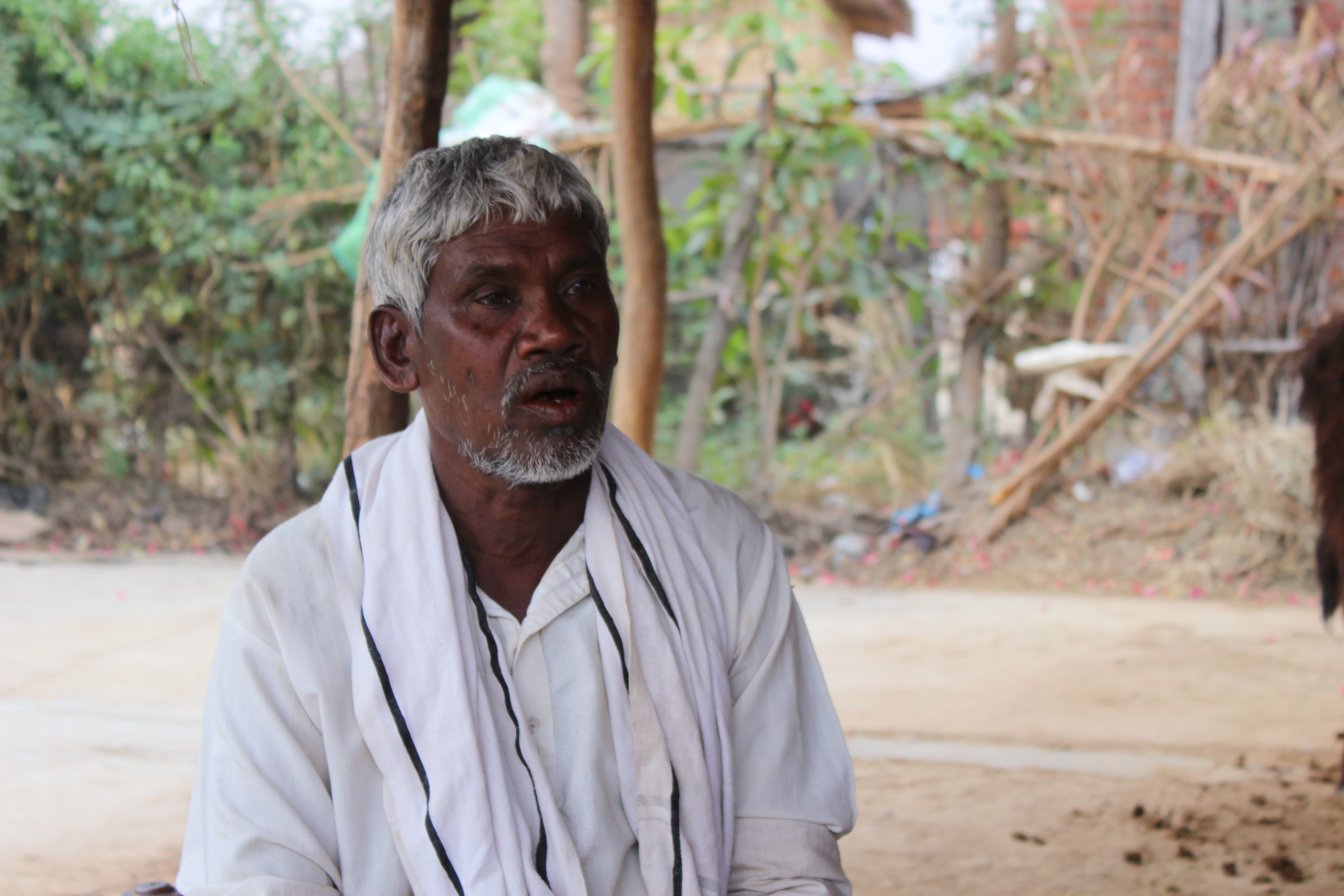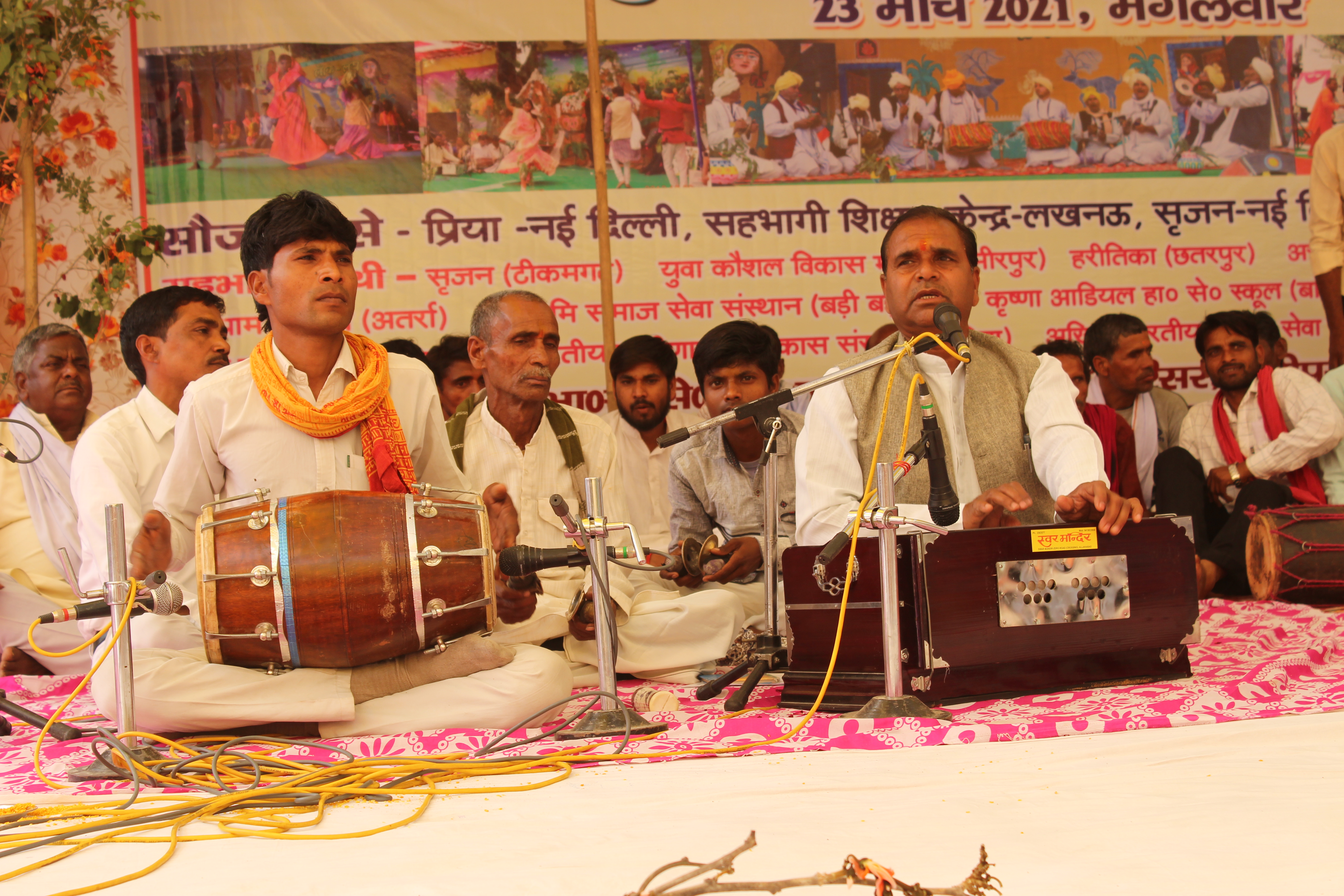Chitrakoot Forest as pictured in the morning. Photo by Meethi Biswas/Flickr.
Deep inside a forest, on the banks of the Mandakini, lies a spot where people gather every March for a festival not many of us have heard of – Lok Lay. In Hindi, “Lok” means “people”, and “Lay” means “rhythm” or “melody”, and in essence, that’s what this festival is all about. Folk music and dance, traditional martial arts, and other performances by the local Adivasi community make it a truly vibrant cultural spectacle.
Lok Lay is crucial to preserving indigenous culture of the Bundelkhand and Chitrakoot region. Songs and stories are imbued with the community’s history and beliefs, yes, but they also contain something that’s often overlooked. Knowledge.
There is much to be learnt from India’s indigenous peoples. Ancient knowledge. Enduring knowledge. The simple truths and practices about agriculture, medicine, engineering, crafstmanship, climate adaptation, and more that our racing and colliding urban megapolises have forgotten or never came across to begin with. If it weren’t for Lok Lay, all that information may well be lost to us.

An Adivasi elder and one of the organisers of the Lok Lay festival in Bundelkhand takes a moment to speak with the PRIA team visiting from New Delhi. Photo by Sonu Kumar.
Promoting the idea that multiple sources of knowledge exist, and that they’re equally valuable, has been central to the work of the UNESCO Chair in Community-Based Research and Social Responsibility in Higher Education. In a ‘Knowledge Democracy’ (one of the Chair’s tenets and focus of its newly published book), Lok Lay has as much to offer as a peer-reviewed journal. In fact, it could offer the very insights that a peer-reviewed journal can’t! And that’s why broadening the base on which research can be done is crucial for both knowledge-producers and knowledge-seekers.
While this wellspring is still available to us, there are various threats to it.
It’s not unusual to hear words like “dying art” or “dying language” during talk of indigenous cultures and cultural products. How do you keep something alive when there’s so little interest?
Sonu Kumar, IT Officer at PRIA, says wistfully “Sanskritik kalaon mein paryapt paisa nahi hai (There isnt enough money in folk arts).” This leaves little incentive for a person to hold on to their centuries-old craft. Many turn to more in-demand economic activities, migrating to cities, cut off from their roots.
Another point of concern, Sonu explains, is how indigenous knowledge is passed down. He says, “Kala ko jaanne wale buzurg mar rahein hain. Agli peerhi unse nahi seekh rahi hai (Elders who know the craft are dying out. The next generation isn’t learning from them).”

A musical performance underway at the Lok Lay festival on March 23, 2021. Photo by Sonu Kumar.

Shanta and Samiksha Jha from PRIA in conversation with an Adivasi elder in Chitrakoot. Photo by Sonu Kumar. 
A glimpse of the cultural performances on the Lok Lay stage. Photo by Sonu Kumar.
For Samiksha Jha, Program Officer at the Martha Farrell Foundation, it’s the disinterest from the State that seems like a big hurdle. Lok Lay needs the support from local governments and politicians to preserve the Adivasi community’s languages, their oral histories, and their cultural prowess.
But there’s one thing that Lok Lay’s organisers can greatly benefit from. Shanta, of PRIA in New Delhi, points out says, “Humein apni sanskriti aur itihas ko digital form mein sambhal ke rakhna chahiye (We must carefully digitalise and store our culture and history).”
Employing these and other strategies will help traditional and indigenous cultures not just survive, but thrive. And that’s crucial for it to emerge as a legitimate knowledge base.
PRIA’s MobiliseHER team traveled to Bangalore during the week of June, 10 – 14, 2024. The aim of the visit was to gain relevant insights into the civil society ecosystem in Bangalore and meet different organisations to understand the city through a lens of gender and inclusive mobility.
Working at PRIA, often leads us to various cities across the country. Each trip is an opportunity to witness firsthand the challenges and triumphs of different communities.
Mr. Yedukrishnan V has recently joined PRIA after gaining valuable experience in the development sector. Drawing from his journey in the social sector and personal encounters in Kerala, he emphasises the importance of participatory governance and research in empowering marginalised communities.'